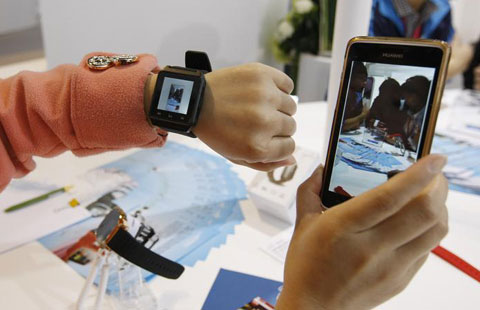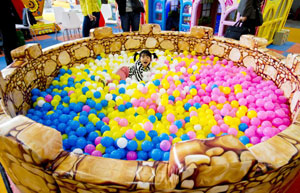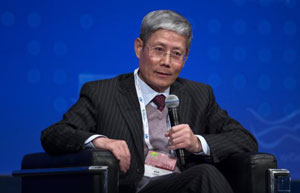Land of opportunity for farmer's daughter
By Joseph Catanzaro (China Daily) Updated: 2014-04-28 17:12She is coy about revealing exactly how much she makes, but lets slip that she recently purchased two apartments in Hebei, and that she is paid a base rate of 5,000 yuan a month. Commissions typically range from 1.5 percent to 3 percent of the sale value. She concedes she makes more in one month than her parents earn farming in an entire year.
"In the last year, I sold 22 homes." she says. "I sell about two homes a month, now."
In the area around her office, Anyuan, apartments go for about 40,000 to 50,000 yuan per square meter.
"Fully furnished could go for around 70,000 yuan or higher. If it's inside the Third Ring Road (inner city), or near a school, it could be 100,000 yuan per square meter."
Hu says buying property in China has some unique quirks.
People with Beijing hukou (residency rights that entitle the holder to social welfare benefits like education and healthcare) are allowed to own two properties in the city, she says. People who do not have Beijing hukou are allowed to own one property in the city. The rules vary slightly between different cities and provinces.
Subsequently, most of the property Hu sells in the capital is to first homebuyers, or locals who have outgrown their current home and want to upgrade. Her daily work inadvertently provides a demographic snapshot of Beijing.
"Over 50 percent of customers buy a home to live in.
"Most buyers are generally 35 to 50 years old, and have a child and elderly parents who live with them. They are mostly buying because they have outgrown their old home. The other category is people who want to buy to be near a good school for their children. And then there are those who have just got married, or parents buying a place for their children after they graduate from university so they can work in Beijing."
People trading up usually want a three-bedroom, 120-150 sq m apartment with two bathrooms.
First homebuyers are generally looking at a 50-80-sq m apartment with a single bathroom.
Hu says the volume of sales and prices have both gone up sharply in the past two years, although recent data from property agents Centaline suggest that overall, Beijing's second-hand home sales last month fell to the lowest levels for March since 2009. Compared with February sales, Centaline also found the average price per square meter had fallen 0.6 percent to 31,400 yuan.
Even though these and other recent figures suggest prices are cooling somewhat, nationally, Hu says buying is still a stretch for many Chinese.
"Those born in the 1980s and 90s mostly cannot afford the deposit alone," she says. "The parents usually pay the deposit. If one person buys a home, they are usually using the savings of their whole family."
For a first home, Hu says the deposit is 30 percent of the evaluated value of the property. For a second home, the deposit is 70 percent of the price, or 60 percent if the buyer has a good credit history.
Hu says her life has changed dramatically in lockstep with her increased income, but she does not have a lot of time to indulge in hobbies like watching movies and shopping, because she is focused on her career.
She saves most of what she earns.
Her company recently sent her on her first overseas trip, a holiday to Singapore, as a reward for good performance.
In the next few years, Hu hopes to have a child. She plans to eventually buy an apartment in Beijing, so her little one can be educated in the capital.
"I am so grateful to my parents for helping me fulfill my dreams," she says. "I want to help my children follow their dreams, too."
Last year, Hu received an award from her company during a ceremony held at the Great Hall of the People. Her elderly parents traveled to Beijing for the first time in their lives to see their daughter honored.
Standing outside China's seat of government, she says it hit her how much her life had changed.
"My parents came with me to the Great Hall of the People," Hu says. "For the first time, I really believed I can really make life better for my parents."
One of the houses Hu recently bought back home in Hebei is for her mother and her father.
Xie Wenjia contributed to the story.
- Yi Gang joins finance and economic affairs group
- Web security firms pledge to patch XP 'vulnerability'
- 16th Hortiflor Expo opens in Beijing
- Clock ticking for Australia on a "truly great" China FTA
- Migrant who wants to keep moving
- CCB beats estimates with 10% profit rise
- Outrider for the delivery brigade
- WH Group seen pricing HK IPO near bottom: IFR
















